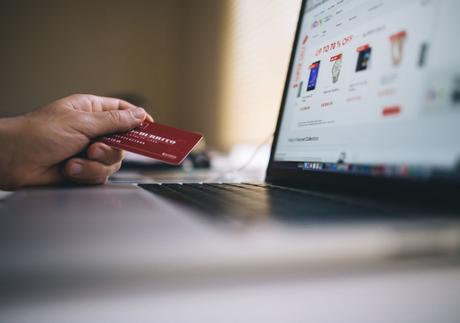Cast your mind back a mere decade, and you'll realize how fundamentally the world has changed in what is an incredibly short span of time. Computers and smartphones have quickly become integral to the smooth running of our everyday lives, and we use them constantly: in the workplace, at home, even when we're on the move.

The problem with this? It means cyber-criminals and online hackers are increasingly targeting us. Exploiting our computers and devices to steal our information and use it for their nefarious purposes, these new-age criminals are a threat we all need to be protecting against. Here are three top tips to help you do that.
Don't trust public Wi-Fi
Although a properly managed firewall will do much to keep you safe, it can't do its work in isolation, and you should also take additional steps to keep your computer secure. One of these is to take care when using public Wi-Fi.The reason you must be careful is that much of your confidential data is sent over the connection unencrypted, meaning almost anyone could lift important information such as passwords. If you have 4G, we suggest using this instead but, if you don't, you'll need to be proactive in securing your connection, and a virtual private network (VPN) is what's needed.
Although it's possible to build your own, most people are advised to use a professional service and, luckily, there's lots of help and advice out there to guide you in choosing the VPN for you. Sites like the one we linked to are especially useful, giving you a breakdown of everything from bandwidth to the speed, security, and smooth running of your various options.
Update your firewall
A firewall is a piece of software or hardware that basically works to keep the bad stuff out: in this case, hackers. Typically coming pre-installed on your computer, it should give you some much-needed protection against the dangers of cybercrime but it will only work effectively if it's kept up-to-date.
This means that the next time you get a pop-up asking for permission to upgrade your system, we strongly recommend you give it the go ahead. With new security patches continually being introduced, you'll be far safer if you stay proactive and work with developers to keep danger at bay.
Install decent anti-virus software
Aside from steering clear of public Wi-Fi and keeping your firewall up-to-date, there's one last thing we would recommend you do: install decent anti-virus software. You're likely to hear various arguments for and against this, with some claiming all it does is slow your computer down but the truth is that every one of us must have it or run the risk of infection instead.
Do remember, though, that, like firewalls, your anti-virus installations will only work correctly if they're updated on a regular basis, meaning basic maintenance is essential.
Easy to manage, highly effective, and eminently simple, these three top tips are the very best ways to keep your computer safe. Why not have a bash at them today?
Ah, but isn't it all a money-making scheme, we hear you say? Not at all. Some of the best anti-virus software out there is available for free, with Microsoft's own Security Essentials coming highly recommended. For Macs, you're more likely to have to spend a little but it's worth your time to do so; the myth that Macs are exempt from viruses is entirely false.
